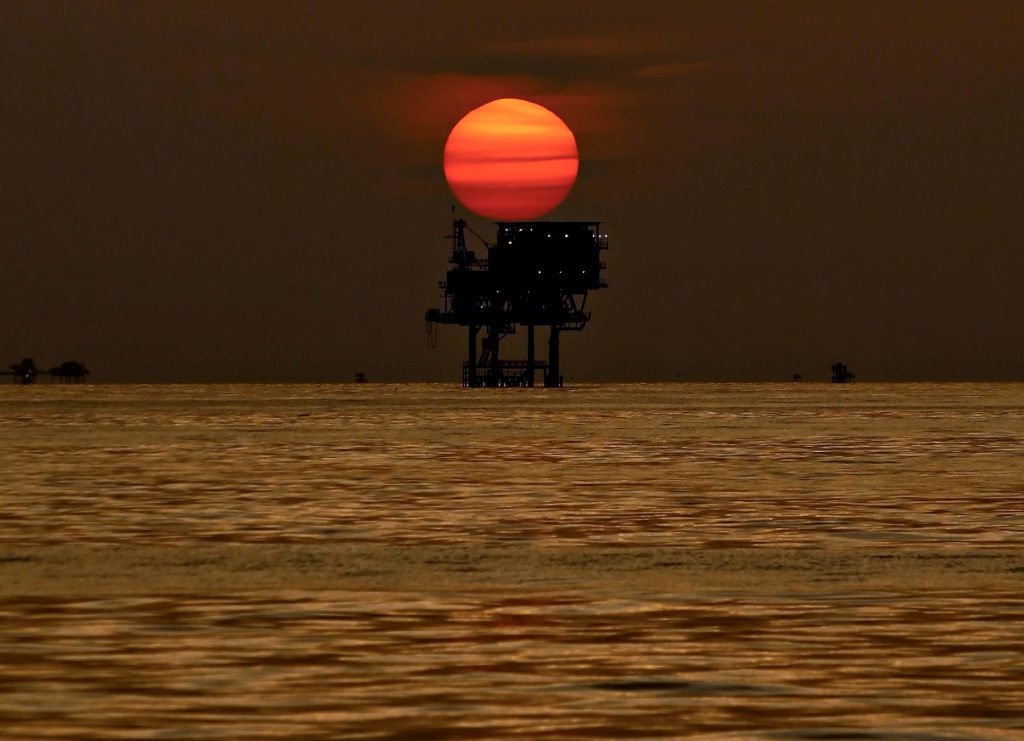
Storegga Geotechnologies, the driving force behind Aberdeenshire’s Acorn project, is eyeing up carbon capture and storage (CCS) opportunities across the pond.
The independent UK company has formed an exclusive joint venture (JV) with Talos Energy, which is focused on oil and gas exploration and production in the United States and Mexico.
Together, the pair are looking to source, evaluate and develop CCS project opportunities on the Gulf Coast and Gulf of Mexico, including state and federal waters offshore Texas, Louisiana, Mississippi and Alabama.
Under the joint venture framework, the partners, will originate and mature CCS ventures with emitters, infrastructure providers, service companies and financing partners.
The JV is designed to combine Storegga’s leading end-to-end CCS project experience and Talos’s offshore operational and sub-surface expertise.
As individual CCS projects are matured in the future, each will be ring-fenced with separate operating agreements, financing structures and the possibility of additional working interest partners.
The agreement requires no up front capital commitments, while future costs will be shared evenly between the two parties.
Talos has been designated as the operating partner of the JV.
The United States Gulf Coast has been identified as a prime location for offshore CCS projects.
The area contains some of the country’s highest concentrations of power generation, industrial and petrochemical facilities, including more than 100 facilities emitting in excess of 1,000,000 tonnes of CO2 a year.
Moreover, there are many smaller private and “middle-market” industrial sites that could require CCS solutions in the future.
Adjacent to the industrial network are large natural carbon storage sites located in shallow waters in the Gulf of Mexico Shelf.
They could potentially offer more than 30 gigatons of available storage, with the necessary rock properties and fluid type to effectively store significant CO2 volumes.
Timothy Duncan, Talos president and CEO, said: “We’re excited to announce this joint venture with Storegga and thrilled to partner with their team as they expand into the United States.
“Engaging in CCS projects along the Gulf Coast and shallow water Gulf of Mexico compliments our operating skill set and diversifies the Company to seize this significant market opportunity.
“We have a responsibility to deliver affordable, reliable energy with the lowest carbon footprint possible, and this joint venture allows us to expand our impact beyond our own assets to provide solutions for removing emissions from critical industrial sectors in our backyard.
“We are actively working on a host of ideas and are proud to be an exclusive operating partner with a recognized leader in the rapidly-evolving CCS space.”
Storegga already carries significant clout in the CCS game.
Through its wholly owned subsidiary Pale Blue Dot Energy, headquartered in Banchory, the company is the lead developer of the Acorn CCS project, housed at the St Fergus gas terminal near Peterhead.
The project is one of the most mature of its kind in the UK and is positioned to be the “most cost-effective and scalable”, according to Storegga.
It is looking at utilising infrastructure already in use in the North Sea oil and gas industry to trap carbon in depleted reservoirs.
Storegga has also partnered with Carbon Engineering, a Canadian-based clean energy company, to develop and build a large-scale direct air capture (“DAC”) plant in the UK within the next five years.
Nick Cooper, Storegga CEO, said: “The rapid deployment of CCS and carbon management value chains requires appropriate geological storage for carbon sequestration, access to emitters and existing infrastructure, and partnerships with experienced, like-minded organisations that share the desire to make this happen.
“The US Gulf Coast offers significant potential for CCS and we are delighted to be partnering with Talos, a leading offshore operator. The joint venture demonstrates the international opportunities for Storegga as an independent developer of CCS infrastructure. We hope that it will be the first of many.”

